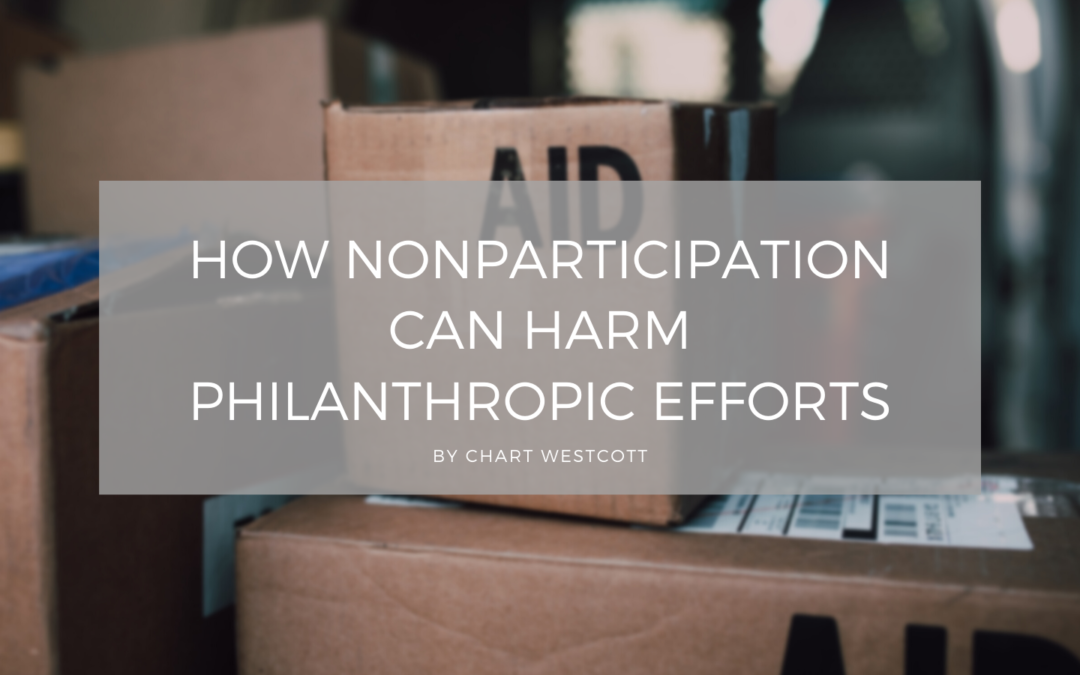Donors give money to nonprofits expecting their efforts to have positive impacts on the world. However, sometimes nonparticipation can be a factor that harms their projects’ performances and thus, limits the potential for these organizations to effectively improve society.
Ethical and Functional Risks of Nonparticipation
Several scholars have considered the role of participation in institutional reform. Some have criticized institutions because they encourage citizens to participate only nominally by voting often or expressing a preference for one candidate over another during elections. Others point out that, even if citizens participate more actively, their influence may be insufficient to address society’s problems.
The argument made against such institutions is that they are neither ethical nor functional; ethics requires an obligation on the part of individuals to act in ways they believe will increase well-being and societal performance by taking action, rather than simply making choices and then allowing others to decide which goals will be realized.
Quantifying Risks of Nonparticipation
To determine how nonparticipation might affect philanthropic efforts, one must first measure it and quantify the problem.
Number of Nonprofit Participants and Risks of Nonparticipation
Nonprofit organizations expect donors to be active participants in their missions. They incentivize participation by offering donors rewards such as thank-you notes or publicly displayed donor names, but these methods cannot motivate all potential contributors. While some individuals are intrinsically motivated to contribute to society (e.g., volunteers), others may have a lower level of intrinsic motivation than required to make significant contributions; for those people, extrinsic incentives are necessary. If they do not perceive an incentive in return for their service, they will choose not to participate; when this often happens enough across a large number of participants, it can limit the effectiveness of an organization.
Making Sense of Ethical and Functional Risks
It is often possible to quantify the risks of nonparticipation. Thus, a quantitative risk analysis can provide important information on how participation affects an organization’s success and whether there is a threshold below which nonparticipation harms efforts made by the nonprofit.
Why Some Donors Stop Participating in Philanthropic Efforts
Nonparticipants have many motivations for not participating in philanthropic efforts. First, barriers preventing them from donating may include a lack of time or knowledge about where contributions would be most useful. Alternatively, they might not care enough about contributing to philanthropy; if it does not matter whether others accomplish their goals, they will not spend any effort on helping others accomplish those goals.
Nonparticipation harms philanthropic efforts because it limits the potential for nonprofits to accomplish their missions. In addition, without sufficient participation, organizations cannot fulfill their ethical obligations or maximize the chance of being functional.

